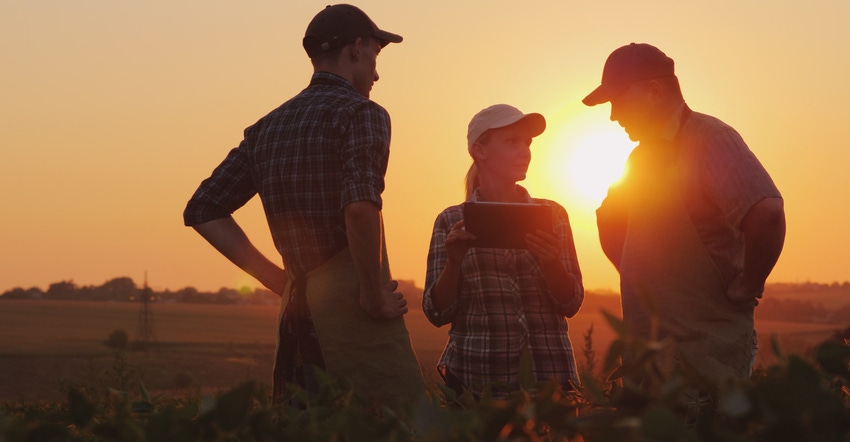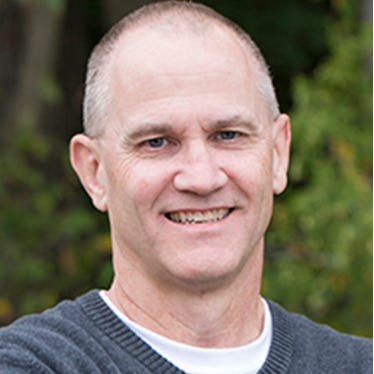
Young farmers and ranchers have no doubt heard about agriculture’s ups and downs, but how do they prepare for them?
Drew Peterson came back to his family’s farm near Salem, S.D., in 2010 from a job in New York. Since his return, he says he has experienced many uncertainties, but he credits his involvement in the First Dakota National Bank’s AgriVisions Emerging Farmer and Rancher Program for arming him with defense mechanisms to handle adversity.
“We were talking about all the scenarios that you might face as a farmer in your career. And the funny thing is that we faced a lot of those since then: drought, flood, trade wars, war, pandemic, you name it,” he says, recalling the message from that first class offered by First Dakota in 2012.
“It was a good way of trying to mentally prepare for black swan events. They told us this is going to happen. It’s not an if, it’s a when,” he says. “They tried to give us some tools and just give us some general train of thought how to get through them.”
That has been the program’s intent since its origin, says Nathan Franzén, president of First Dakota’s Agri-Business Division, based in Yankton, S.D. “We try to expose students to a lot of what they might encounter in their farming career,” he says of the program that is educating its sixth class.
Held every other year, the program is divided into four parts, with each being a multiday event. The first session is held in early spring in Mitchell, S.D., where the group dives into farm management and financials. The second session is held at the South Dakota State University in Brookings, covering marketing and risk management.
Communication key
Students gain contact with nationally known speakers, such as David Kohl, professor emeritus of ag finance and small-business management at Virginia Tech. Another has been award-winning speaker Jolene Brown, “who comes in and talks about family dynamics, and succession and transition — and how to have productive, respectful conversations through that process, and be patient and make it work,” Franzén says.
After hearing Brown’s presentation, students in the first class returned to the farm full of energy and excitement, Franzén says, but “Mom and Dad at home, or Grandma and Grandpa, weren’t always ready for that conversation.”
A “social” is now held allowing students to bring family members for Brown’s presentation. “That way they all get to hear it at the same time. They all get to understand the message,” he says.
During transition planning, Franzén says communication needs to be respectful, although he understands the younger generation’s desire “to be president right away.”
“You want to know what the fast track is, but the longer you’re around, the more you realize it doesn’t work that way,” Franzén says. “It’s about a long and persistent effort. It’s about doing everything right. It’s about being professional and how you communicate. You can burn bridges if you’re too aggressive in that approach, and that’s counterproductive.”
Having the older generation hearing the conversation at the same time, “I think it’s just real healthy,” Franzén says. “It positions them to go back home and have a real productive conversation and not have it turn a little tense.”
Peterson, 37, praises the program for that assistance with interpersonal and family communication, as his own family’s operation has transitioned when his brother left the farm and his mother passed away. Peterson and his dad, Steve, operate 4,000 acres of row crops, 800 to 1,000 cow-calves and a 2,000-head feedlot, so he knows firsthand of a family operation in transition.
Gain bigger picture
The third part of the program involves participants taking a trip, which has included a variety of stops over the years, including a barge facility, Hormel pork processing facility, Cargill animal research facility and an Agco manufacturing site.
“We’re just trying to get them off the farm and get them to see how things work up and down the food chain as it relates to their products when they leave their farm, so that they have a much better perspective,” Franzén says. “We also try to expose them to new trends — the farm-to-plate movement, locally grown, organic — so that they understand the developing markets that they may want to be a part of.”
Being multiday events, the sessions require overnight stays, giving participants a chance to socialize and network. “The curriculum and the content has a ton of value, but the networking has just as much value,” Franzén says.
Peterson agrees with that, saying he has kept in contact with fellow participants from that first class.
The fourth segment of the program takes place in Sioux Falls, S.D., at the end of the year, focusing on strategic planning. “We walk them through what a good plan should look like,” Franzén says. “Can you facilitate it on your own? Do you need to bring in someone from the outside?”
The program is offered every other year, with 25 to 30 “students” who are 21 years and older and who have 10 years or less experience in farming. Students do not have to be First Dakota customers, nor do they need to be South Dakota residents. For more information, contact Renae Brooks at First Dakota National Bank at 605-665-4901, or visit firstdakota.com/agriculture.
“What gets me up every morning is to make sure we’re giving our clients all the tools they need to not have happen to them what happened to lots of families in the ’80s,” Franzén says.
About the Author(s)
You May Also Like






